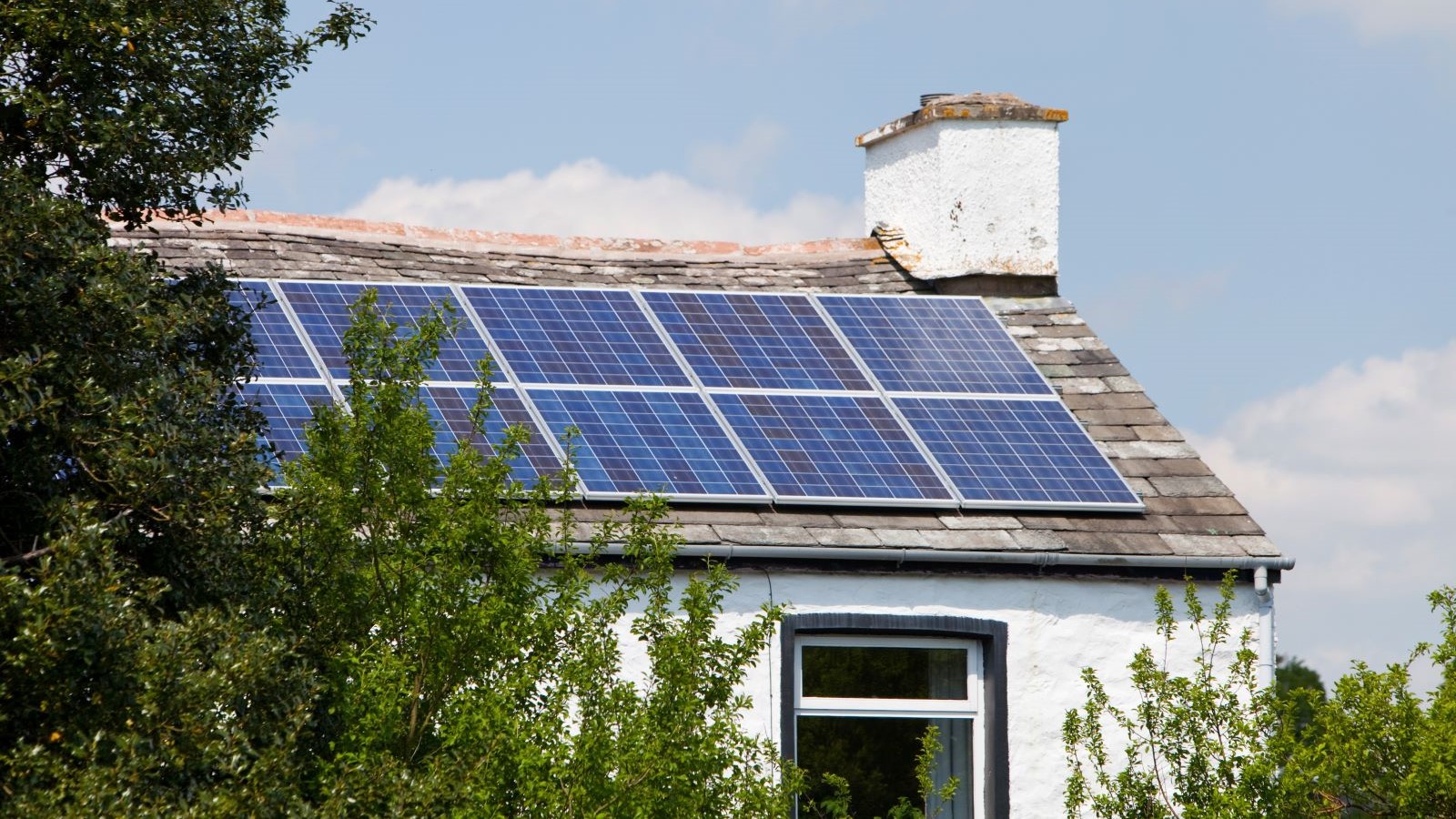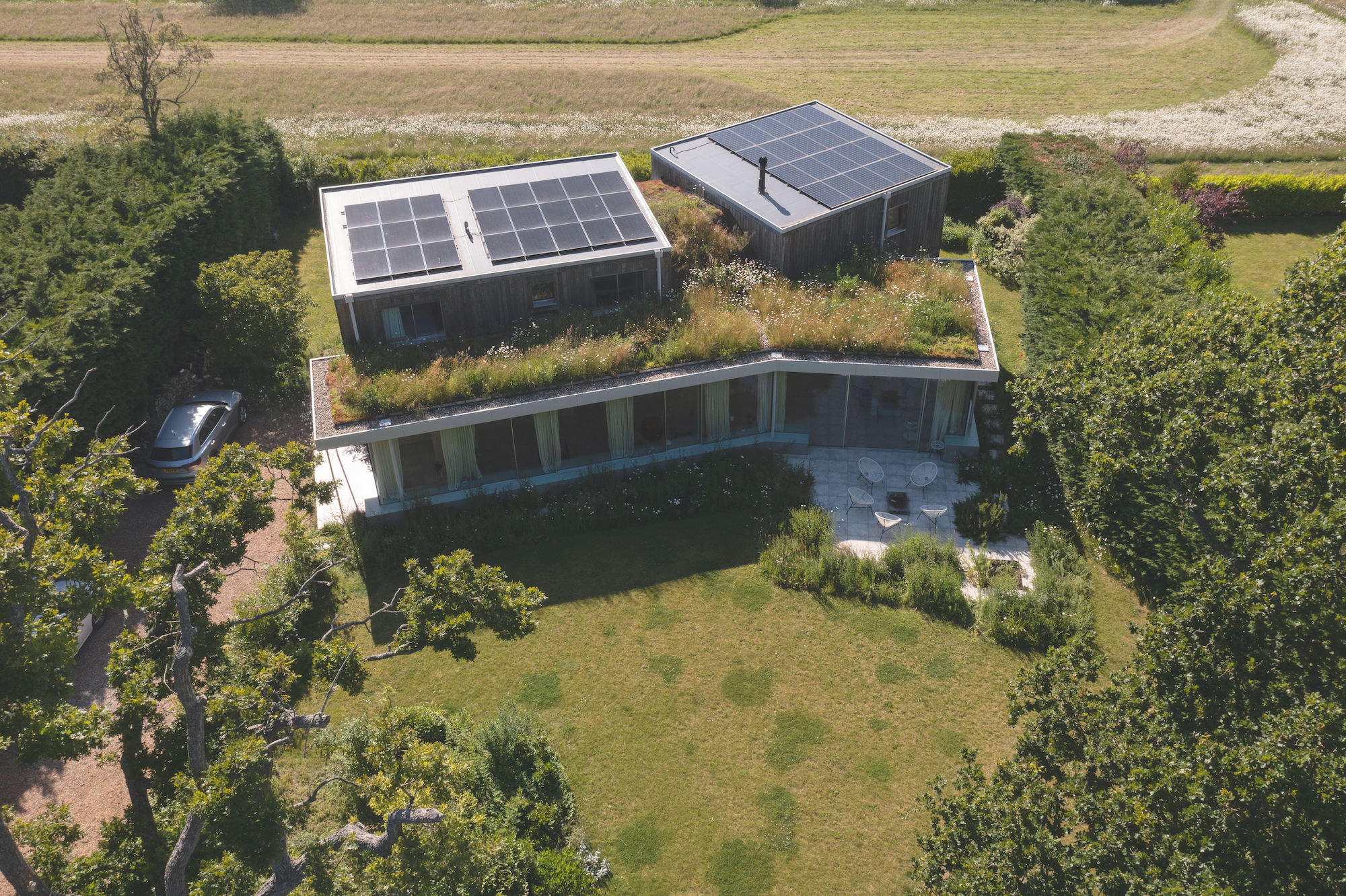Great British Energy blocks use of solar panels linked to forced labour
Great British Energy blocks use of solar panels linked to forced labour as the UK moves to eliminate unethical sourcing from Chinese supply chains

Bring your dream home to life with expert advice, how to guides and design inspiration. Sign up for our newsletter and get two free tickets to a Homebuilding & Renovating Show near you.
You are now subscribed
Your newsletter sign-up was successful
The UK government has announced that Great British Energy, the state-owned energy company, will be prohibited from using solar panels linked to forced labour practices in China's Xinjiang region.
This decision comes amid mounting pressure from MPs, campaigners, and international observers to ensure that the UK's transition to renewable energy does not come at the cost of human rights abuses.
However, the decision has now raised concerns over how the UK will maintain sufficient supply chains of solar panels to continue the UK's net zero transition.
GB Energy's ethical stand against forced labour
GB Energy, established to spearhead the UK's renewable energy initiatives, has taken a firm stance against the use of solar panels produced under unethical conditions.
The company's decision to exclude products linked to forced labour in Xinjiang reflects a commitment to ethical sourcing and human rights. This move aligns with growing global concerns about the use of forced labour in the production of polysilicon, a key component in solar PV panels, in the Xinjiang region.
Energy Secretary Ed Miliband stated: "Great British Energy will be an industry leader in developing supply chains free of forced labour as it propels us in our clean energy superpower mission."
Chris Hewett, Chief Executive of Solar Energy UK, expressed confidence, said: "Given progress in ensuring that the UK supply chain is free from solar panels produced with raw materials tainted by human rights abuses, we are confident that there will be no slowdown in solar deployment."
Bring your dream home to life with expert advice, how to guides and design inspiration. Sign up for our newsletter and get two free tickets to a Homebuilding & Renovating Show near you.
The amendment to the Great British Energy Bill ensures that the company's investments in solar panel projects will not support industries implicated in human rights abuses.
Political and public pressure prompt policy shift

The government's decision follows intense pressure from across the political spectrum and human rights organisations. Previously, the Labour government had instructed MPs to reject a similar amendment.
However, the growing outcry over human rights violations in Xinjiang and the ethical implications of sourcing solar panels from the region led to a reconsideration of the policy.
Critics had warned that the UK's reliance on solar panels produced in Xinjiang could undermine its commitment to human rights and ethical practices.
Sarah Champion MP, Chair of the International Development Select Committee, said: “I’m gravely concerned that without sufficient safeguards in place, we will run the risk of transitioning to net zero on the backs of those in slavery. We need to see clear intent that modern slavery cannot make up any part of GB Energy supply chains.”
Penny Mills, director of Devon CPRE, expressed concerns about local councils' lack of control over solar panel sourcing, added: “Three of the four councils we contacted either don’t have a clue what we are talking about or say they have no powers to ensure solar panels are ethically sourced. The UK Government’s pledge to exclude suppliers complicit in systematic human rights violations is meaningless.”
The policy shift has been welcomed by advocates for ethical energy sourcing, who see it as a necessary step towards ensuring that the UK's green transition does not come at the expense of vulnerable populations.
Challenges ahead in ethical sourcing
While the decision marks a significant step towards ethical sourcing, challenges remain in implementing the policy.
China currently dominates the global production of polysilicon, accounting for a substantial share of the market. This dominance raises concerns about the feasibility of sourcing solar panels entirely free from links to forced labour whilst keeping the cost of solar panels down.
Industry representatives have called for the UK to take a leadership role in developing alternative supply chains and supporting domestic production of solar panel components.
The government asserts that domestic and ethical international supply chains can meet demand, and pressure is mounting on China to improve labour standards.
As the UK continues its transition to renewable energy, balancing ethical considerations with environmental goals remains a pressing challenge.

News Editor Joseph has previously written for Today’s Media and Chambers & Partners, focusing on news for conveyancers and industry professionals. Joseph has just started his own self build project, building his own home on his family’s farm with planning permission for a timber frame, three-bedroom house in a one-acre field. The foundation work has already begun and he hopes to have the home built in the next year. Prior to this he renovated his family's home as well as doing several DIY projects, including installing a shower, building sheds, and livestock fences and shelters for the farm’s animals. Outside of homebuilding, Joseph loves rugby and has written for Rugby World, the world’s largest rugby magazine.
